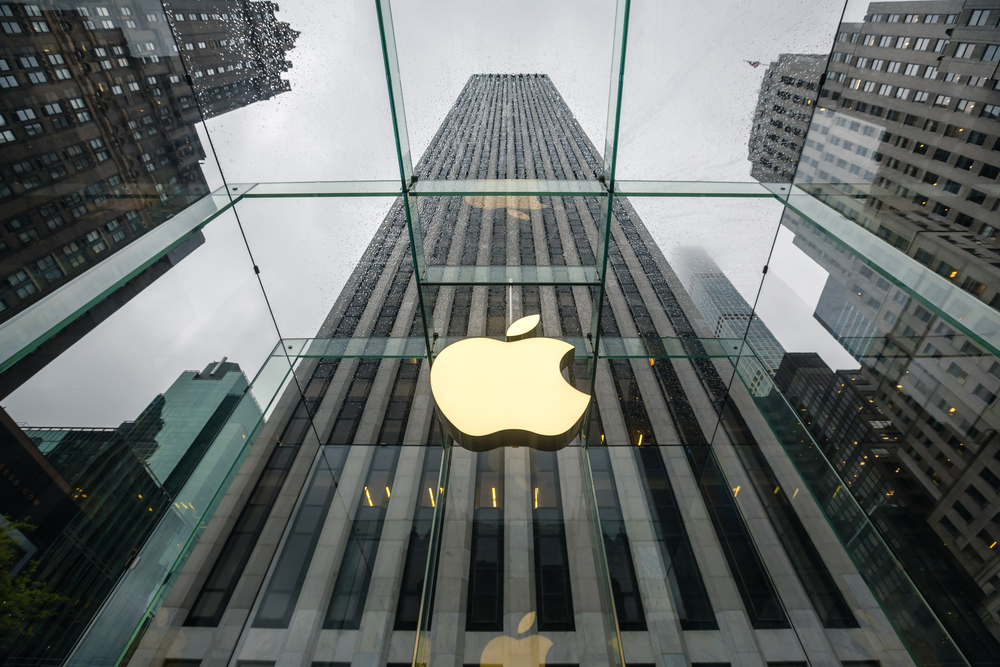Apple blames US-China trade war for first drop in revenue in over a decade
Apple reported its Q1 2019 revenue will fall short of previous estimates


Apple has lowered its Q1 2019 revenue estimates from $89-93bn to $84bn, breaking its twelve-year winning streak, citing the unforeseen 'magnitude of economic deceleration, particularly in Greater China' as a significant influencing factor.
The revenue target marks the first year-over-year decline since 2016 for the iPhone manufacturer, falling significantly below its Q1 2018 revenue of $88.3bn.
Sales of the iPhone have suffered over the past year, particularly in China, while expected upgrades from older models in some of Apple's more developed markets also fell short of predictions.
Apple is heavily reliant on the success of its flagship mobile product and despite year-over-year growth of nearly 19% for its other devices, including the iPad, Mac and wearables divisions, a disappointing iPhone performance has sent investors reeling.
It wasn't just a high-priced phone and reduced priced battery replacements that stopped consumers from buying Apple's latest line of phones, though. Macroeconomic factors were cited as key contributors with a focus on China's economy.
China's economy slowed in the second half of 2018, as did visits to Apple stores in China, Tim Cook wrote in a letter to investors.
"While we anticipated some challenges in key emerging markets, we did not foresee the magnitude of the economic deceleration, particularly in Greater China," said Cook. "In fact, most of our revenue shortfall to our guidance, and over 100% of our year-over-year worldwide revenue decline, occurred in Greater China across iPhone, Mac and iPad.
Get the ITPro daily newsletter
Sign up today and you will receive a free copy of our Future Focus 2025 report - the leading guidance on AI, cybersecurity and other IT challenges as per 700+ senior executives
"China's economy began to slow in the second half of 2018. The government-reported GDP growth during the September quarter was the second lowest in the last 25 years," he added.
It's not just the country's economy, the widely reported trade war between China and the US is also believed to have contributed to the lack of iPhone sales.
"We believe the economic environment in China has been further impacted by rising trade tensions with the United States," said Cook. "As the climate of mounting uncertainty weighed on financial markets, the effects appeared to reach consumers as well, with traffic to our retail stores and our channel partners in China declining as the quarter progressed. And market data has shown that the contraction in Greater China's smartphone market has been particularly sharp.
It has already been reported from intercepted EU cables that China's president Xi Jinping doesn't care "if a trade war hurt everybody", as long as China is seen to not submit to President Trump's bullying of Beijing.
But despite the bitter feud between the two economic powerhouses, Apple believes its business in China "has a bright future".
"The iOS developer community in China is among the most innovative, creative and vibrant in the world, said Cook. "Our products enjoy a strong following among customers, with a very high level of engagement and satisfaction."
Following the announcement, Apple's share price fell by 7.5% in after-hours trading.

Connor Jones has been at the forefront of global cyber security news coverage for the past few years, breaking developments on major stories such as LockBit’s ransomware attack on Royal Mail International, and many others. He has also made sporadic appearances on the ITPro Podcast discussing topics from home desk setups all the way to hacking systems using prosthetic limbs. He has a master’s degree in Magazine Journalism from the University of Sheffield, and has previously written for the likes of Red Bull Esports and UNILAD tech during his career that started in 2015.
-
 Bigger salaries, more burnout: Is the CISO role in crisis?
Bigger salaries, more burnout: Is the CISO role in crisis?In-depth CISOs are more stressed than ever before – but why is this and what can be done?
By Kate O'Flaherty Published
-
 Cheap cyber crime kits can be bought on the dark web for less than $25
Cheap cyber crime kits can be bought on the dark web for less than $25News Research from NordVPN shows phishing kits are now widely available on the dark web and via messaging apps like Telegram, and are often selling for less than $25.
By Emma Woollacott Published